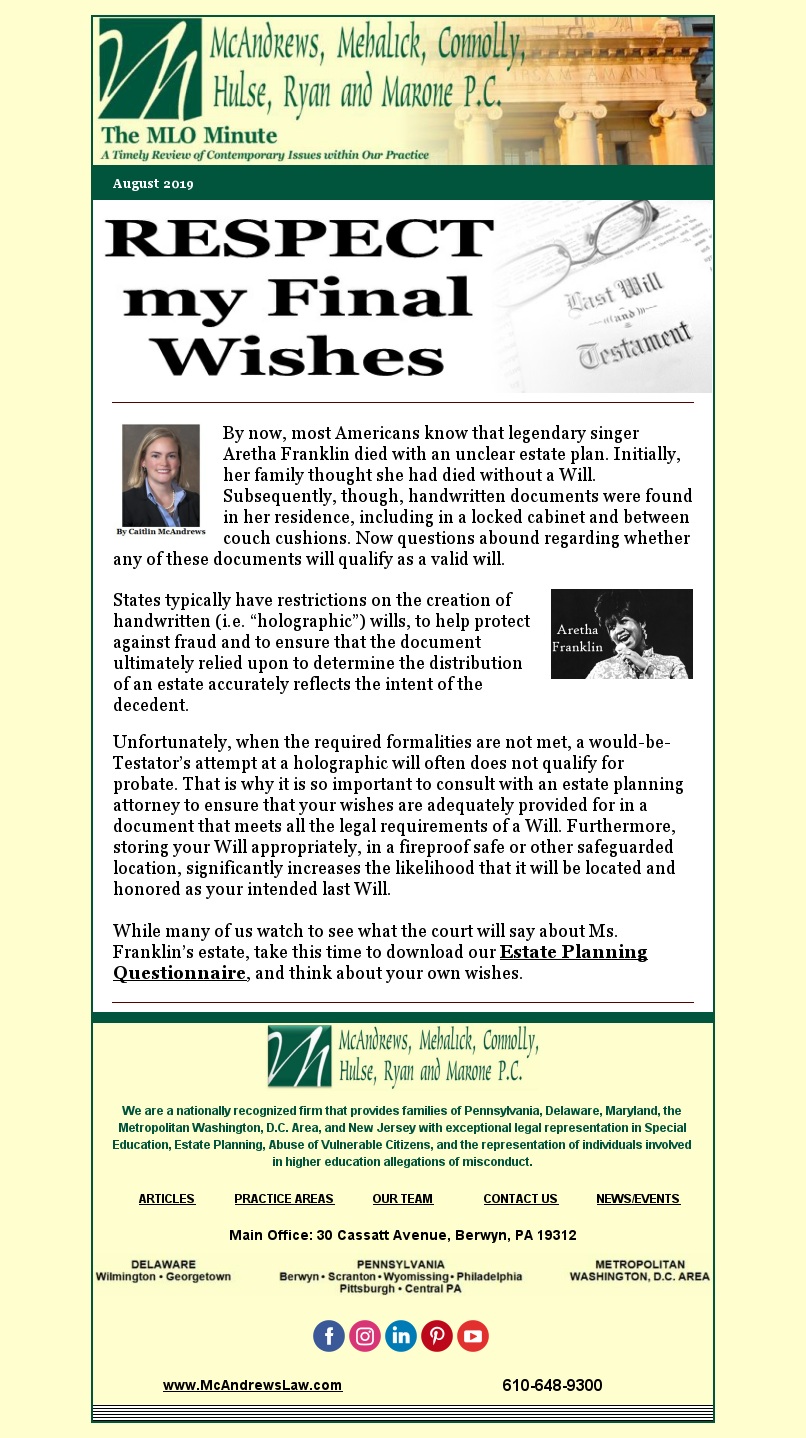August 2019
The MLO Minute, By Caitlin McAndrews, Esq.
By now, most Americans know that legendary singer Aretha Franklin died with an unclear estate plan. Initially, her family thought she had died without a Will. Subsequently, though, handwritten documents were found in her residence, including in a locked cabinet and between couch cushions. Now questions abound regarding whether any of these documents will qualify as a valid will.
States typically have restrictions on the creation of handwritten (i.e. “holographic”) wills, to help protect against fraud and to ensure that the document ultimately relied upon to determine the distribution of an estate accurately reflects the intent of the decedent.
Unfortunately, when the required formalities are not met, a would-be-Testator’s attempt at a holographic will often does not qualify for probate. That is why it is so important to consult with an estate planning attorney to ensure that your wishes are adequately provided for in a document that meets all the legal requirements of a Will. Furthermore, storing your Will appropriately, in a fireproof safe or other safeguarded location, significantly increases the likelihood that it will be located and honored as your intended last Will.
While many of us watch to see what the court will say about Ms. Franklin’s estate, take this time to download our Estate Planning Questionnaire, and think about your own wishes.





